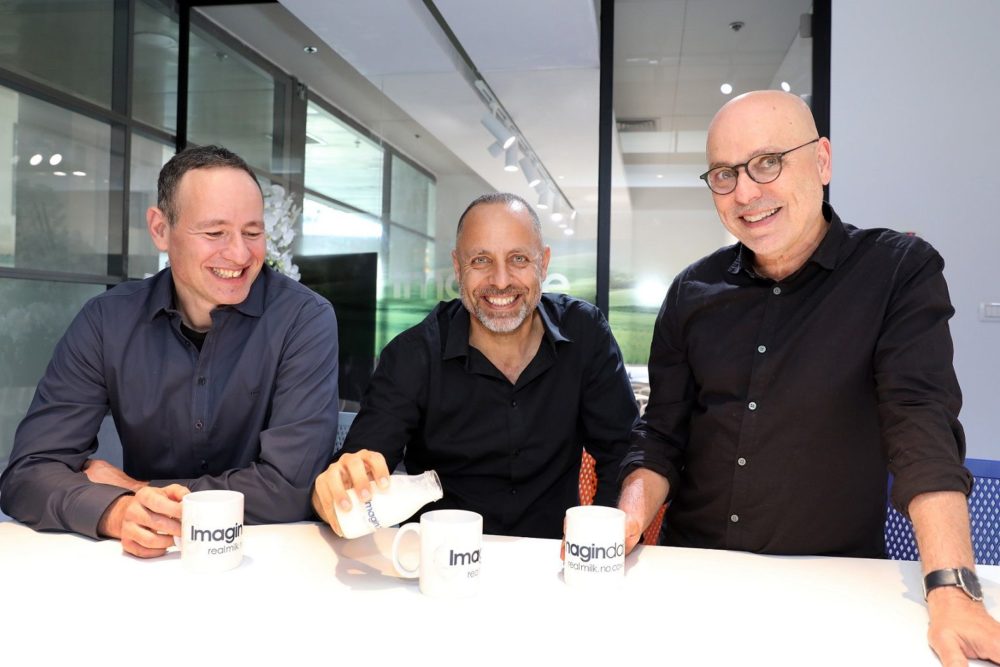Strauss Group to Launch Innovative Cow-Free Dairy Products
Israeli food powerhouse Strauss Group is set to revolutionize the dairy industry with the introduction of ‘cow-free’ cream cheese and drinks. These products will utilize whey protein sourced from Imagindairy, a company that produces protein through microbial fermentation rather than traditional dairy farming.
Product Launch Details
Sold under Strauss Group’s established brands, Yotvata and Symphony, the new products incorporate Imagindairy’s beta-lactoglobulin, a type of whey protein cultivated in fermentation tanks using an engineered strain of the fungus Aspergillus Oryzae (commonly known as kōji).
These lactose-free offerings are certified kosher and will be available in retailers across Israel within weeks, with more cow-free products planned for future release. Barak Weinstein, head of Strauss Neo, commented, “The new products provide fresh solutions for a wide range of consumers whose needs have only been partially addressed until now.”
Imagindairy’s Breakthroughs and GRAS Status
Imagindairy was founded in 2020 by Dr. Arie Abo, Dr. Tamir Tuller, and Dr. Eyal Afergan. The company has successfully established a clientele that encompasses both small businesses eager to embrace the ‘animal-free dairy’ movement and multinationals aiming to meet environmental, social, and governance (ESG) objectives by substituting cow-derived whey with microbial alternatives, touted for their reduced carbon footprints.
The company recently expanded its capabilities with a fermentation site that boasts a 100,000-L capacity, and has received a “no questions letter” from the FDA for its animal-free beta-lactoglobulin product. This status places it among a select group of startups leading the way in the animal-free dairy arena.
Production Advantages
Eyal Afergan elaborated on the benefits of in-house production, stating, “Having our own production capacity makes a huge difference for R&D, allowing for quicker iterations and enabling us to adapt effectively.” Unlike many companies reliant on contract manufacturing organizations (CMOs), which can entail lengthy wait times and high costs, Imagindairy’s direct production approach enables faster adjustments and innovations.
Afergan highlighted the integration of AI and machine learning technologies to optimize production strains, demonstrating that Imagindairy’s efficient systems produce competitive unit economics. “Filamentous fungi yield significantly higher production outputs compared to other microbial species like yeast or bacteria,” he added.

Animal-Free Dairy: A Sustainable Future
Proponents of animal-free dairy contend that dairy products created without the use of cows can offer a dual advantage: sustainability and ethical production methods that do not compromise on nutrition or functionality. However, the market for such products is still developing, as stakeholders actively explore the best strategies for consumer engagement and regulatory navigation.
Emerging firms such as French startup Verley are working on functionalized animal-free whey proteins set to launch in 2026, while Dutch startup Vivici is generating interest for its beta-lactoglobulin in premium nutrition markets.
Although many companies in this space currently rely on co-manufacturers due to funding challenges, leaders such as Perfect Day are also making strides. The company is in the process of launching a fermentation facility in India, with an expected operational date in 2026.
While funding remains a concern for large-scale projects, partnerships like Vivici’s with Liberation Labs aim to produce beta-lactoglobulin at full industrial scale at their upcoming Indiana facility, expected to commence production next year.



